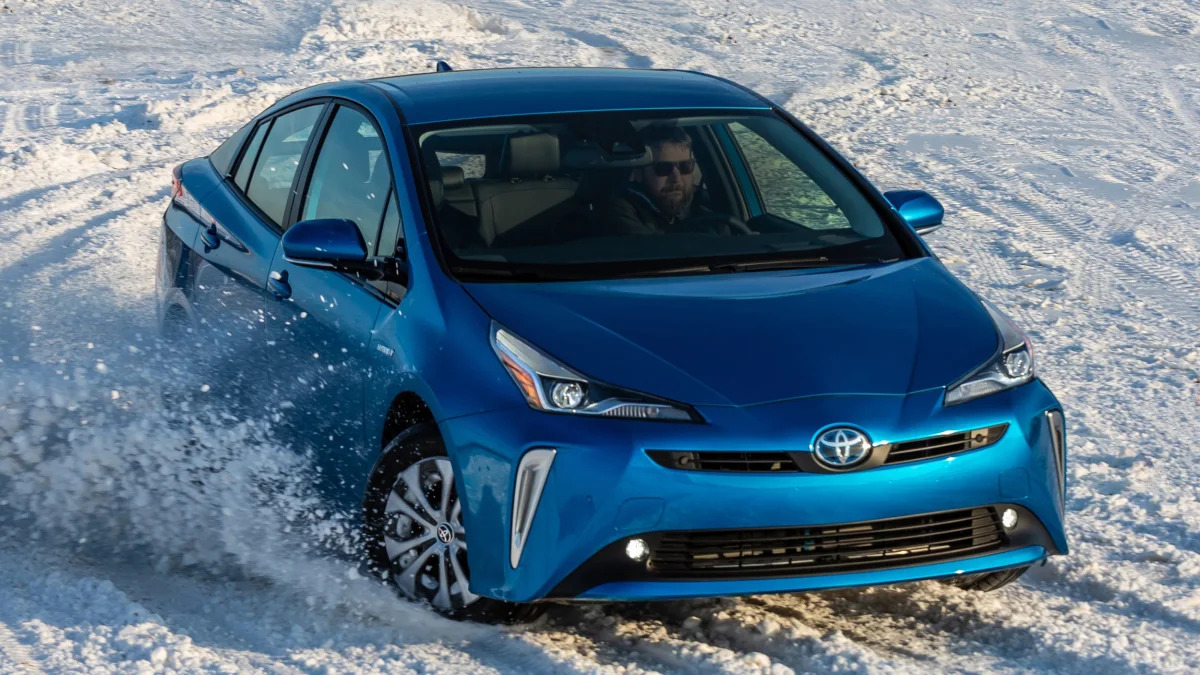Toyota boss Akio Toyoda is one of the most vocal opponents of banning the internal combustion engine. He renewed his call to reconsider the measures announced by various governments around the world and warned that bans could indirectly cause unemployment in Japan.
"Carbon is our enemy, not the internal combustion engine," he said during a Japan Automobile Manufacturer's Association (JAMA) press conference. He's the group's chairman. He pointed out Japan's car industry has cut its CO2 emissions by 23% over the past 20 years, largely with hybrid technology like the system Toyota pioneered before a vast majority of its domestic and international rivals. In his view, the industry needs to "leverage the technological advantages that we have built up and take immediate steps to maximize CO2 reductions using the electrified vehicles we have now," a strategy which would free up resources to develop solutions for other carbon-emitting industries.
While he stopped short of citing examples, the experimental hydrogen-powered Corolla race car unveiled earlier in 2021 illustrates Toyoda's point. It's powered by a turbocharged three-cylinder engine that burns hydrogen — unlike the Mirai, which is equipped with a hydrogen fuel cell that generates electricity. The prototype has zero local carbon emissions, just like an EV, but it uses proven and existing technology. Toyota is also reportedly developing a diesel-electric hybrid powertrain to put in its bigger cars, like commercial vehicles and SUVs.
Toyoda added that regulations written in and for Europe could have disastrous consequences on the Japanese economy. Japan's car industry employs about 5.5 million people, a figure which represents 10% of the country's workforce, and it exports about half of the roughly 10 million cars it builds annually. His team estimates that the annual production of battery- and hydrogen-powered cars will not reach the two-million mark by 2030, meaning Japan would be left with about eight million cars that it won't be able to export to markets where the internal combustion engine will be banned, either directly or indirectly through strict regulations. In turn, this could cause Japan to lose "a vast majority" of industry jobs. "I would like policy makers to understand this point when addressing the environmental issue," he stressed.
This isn't the first time Toyoda has boldly and openly criticized bans like the ones announced in Japan, the United Kingdom, New York, and California. In late 2020, he cautioned that forcing the industry to go all-electric could cause Japan to run out of electricity in the summer, and that bans threaten to make private car ownership "a flower on a high summer," meaning out of reach for many consumers. Toyota investors have denounced him for questioning the bans, and Toyota is on track to release its first series-produced EV, the bZ4X, in 2022.
Interestingly, Yamaha president Yoshihiro Hidaka (who is JAMA's vice chairman) addressed the topic of electrifying the motorcycle segment during the same press conference. Yamaha is planning a range of electric two-wheelers, but he noted that, in his opinion, the optimal powertrain for motorcycles differs based on usage, displacement, and the needs of various communities. He said that, looking far ahead to 2050, other options such as hydrogen and synthetic fuel might be available to motorcycle manufacturers around the world.
Related video:










Sign in to post
Please sign in to leave a comment.
Continue